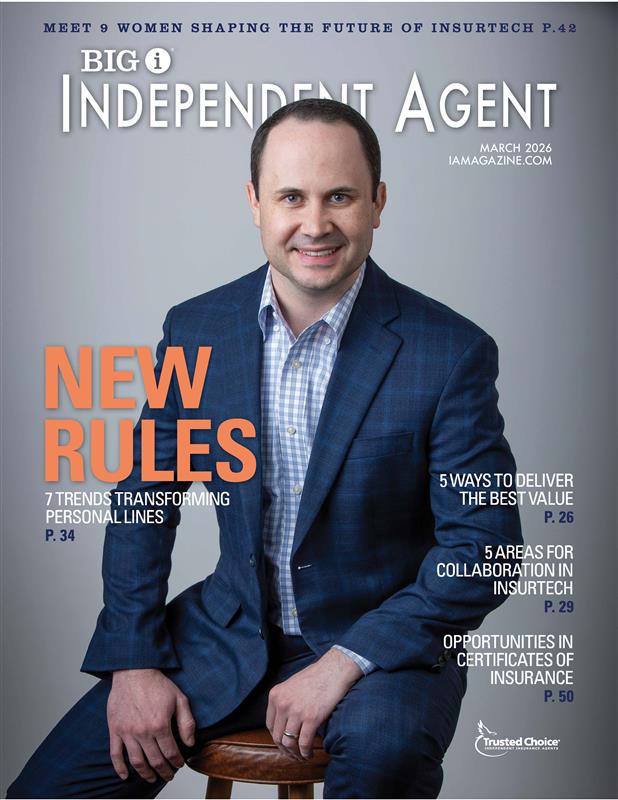3 Ways Agents Can Add Value Amid Rising EPLI Rates

By: Olivia Overman
Businesses of all sizes are susceptible to employment issues. As the U.S. continues to deal with the impact from COVID-19, social movements and a looming recession, agents play an important role in helping clients buy the best value coverage that will shield them from resultant employment claims.
Over the past few years, insureds have been dealing with rate increases of anywhere between 10% and 75% depending on factors such as jurisdiction and industry. “Some classes and jurisdictions are worse; for example, California and New York are always the leaders,” says Jordan Kurkowski, senior vice president, management and professional liability broker, Amwins. “You get into the areas around Chicago and the Midwest and it’s tougher.”
“Rate increases across the employment practices liability insurance market are being driven by layoffs and furloughs—regardless of whether they are pandemic-related—social movements and social inflation, as well as claim activity,” says Jennifer Bergstrom, vice president, product head – executive risks, Hiscox.
“COVID-19 has also ignited other factors: the ‘Great Resignation’ has increased the pay gap and more states are passing equal pay laws, which may result in an increase in equal pay claims,” Bergstrom says. “We are continuing to watch this space.”
Many businesses suffered through the coronavirus pandemic and are cautious heading into further economic headwinds brought about by the likelihood of the U.S. economy falling into a mild recession by the end of 2022 as the Federal Reserve raises rates to tame prices.
“When under pressure to survive, many small businesses have historically dropped coverages that they considered non-essential,” says Sandra Tata, vice president, specialty liability, treaty division, HSB. “While the exposures continue to increase and present greater risk, clients may be willing to take the risk to save money which makes selling EPLI even more challenging during difficult economic conditions.”
Here are three ways agents can help prospective and current clients deal with rising EPLI costs, as well as the stricter coverage terms:
1) Select the right carrier. “Having a wholesale broker or an agent that not only knows the marketplace but has embedded relationships with the underwriters and senior management has really led to most of the placement success that we’ve seen,” says Brian Dobes, area senior vice president, RPS. “For agents, continuing to broaden your EPLI marketing list to include new MGAs and platform-focused InsurTechs can really help find you that needle in the haystack.”
Further, placing an insured’s coverage with a carrier who offers risk mitigation tools and services as part of their policy is a must when it comes to offering EPLI coverage. Many independent agents work with small and medium-sized businesses, many of which find it difficult to keep up to date with changing employment laws.
“Many carriers offer their insureds access to online training seminars on sexual harassment and returning to the workplace post-pandemic,” Bergstrom says. “They can also offer hotlines to access employment law attorneys who are available to answer employment-related questions, free employee handbook building tools and state-specific employment guides.”
2) Check coverage adequacy and comprehension. Understanding the different coverage options available in the market is essential to procure the coverage needed. Offering relevant coverage will enable clients to “focus on running their business—that’s invaluable,” Kurkowski says. “It’s about getting an expert involved and using your network of experts to make sure you are putting your client in the best and most secure position.”
Remind clients that an uncovered incident could end up with them having to “take the net income they’ve earned in a year and pay it in an EPLI claim when you could offset it with a $3,500 policy,” Kurkowski says.
Further, clients may need to also be reminded that even if an employee brings a claim that does not have merit, the employer is responsible for defending itself. “Legal costs for defense can be expensive and have a significant financial impact to a business’ operations,” Tata says. “Small businesses typically have limited resources and do not have the dedicated HR or legal teams to help support this effort.”
3) Demonstrate the value of an EPLI policy. For many small business owners, employee loyalty is a key component to operating a successful business. But “many insureds, in particular small business owners, have the false sense of security that their employees are loyal and they are not at risk of any potential wrongful employment allegation,” Tata says. “This, coupled with the lack of past claim activity, unfortunately results in declination of purchasing an EPLI policy.”
“For agents, demonstrating the exposures clients may face by assuming such loyalty is critical,” Tata adds. “It is critical for the agent to fully understand and be able to demonstrate the many exposures employers are constantly faced with and the importance of protecting their business: It is when it is least expected that allegations can be presented and catch an insured off guard.”
Olivia Overman is IA content editor.










